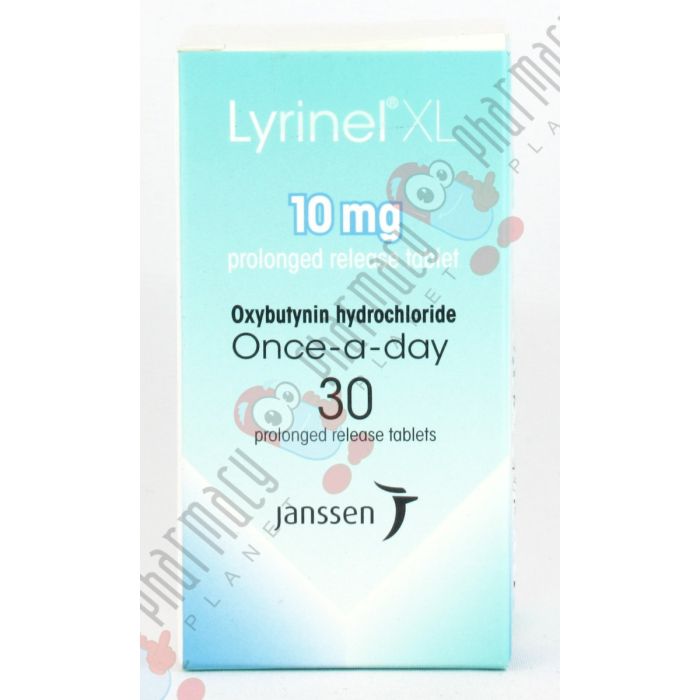Oxybutynin XL/Lyrinel XL
Lyrinel XL contains a medicine called Oxybutynin which relaxes the muscles of the bladder, causing the bladder wall to contract less quickly. This allows the bladder to store more urine without feeling the need to urinate. Oxybutynin is prescribed for problems caused by an overactive bladder, such as urinary incontinence and enuresis. Urinary incontinence, which is the result of an overactive bladder, is often also called urge incontinence. The patient often has to urinate even though the bladder is not yet full. Then it may happen that the urine cannot be stored well. Because Oxybutynin relieves the urge to urinate, incontinence decreases. Lyrinel XL is a modified release formulation meaning that it releases the drug in controlled fashion and may not require administration as frequently as other Oxybutynin formulations.

| Brand | Medicine Strength | Size | Price |
|---|---|---|---|
| Lyrinel XL | 10mg | 30 Tablets | 45.00 |
| Lyrinel XL | 10mg | 60 Tablets | 86.00 |
| Lyrinel XL | 10mg | 90 Tablets | 120.00 |
| Lyrinel XL | 5mg | 30 Tablets | 28.00 |
| Lyrinel XL | 5mg | 60 Tablets | 51.00 |
| Lyrinel XL | 5mg | 90 Tablets | 74.00 |
It looks like you missed filling in questions from the last consultation.Click Here to submit your response.
Notify me once available


It is the prescribers duty to ensure that the medicine is being used safely and appropriately. please answer a few questions about yourself to help us process your request.
Customer Service Team
Confidentiality & Authenticity Assured
- Fully Regulated UK Pharmacy
- Authentic UK sourced medicines only.
- Trading for more than 10 years.
- Information Governance lead ensures all data is confidential
Need Help With Your Questionnaire?
Our customer service team is on hand Monday-Friday to help you with your queries.
Please call us on 08009788956 or
email us at: headoffice@pharmacyplanet.com
Lyrinel XL contains a medicine called Oxybutynin which relaxes the muscles of the bladder, causing the bladder wall to contract less quickly. This allows the bladder to store more urine without feeling the need to urinate. Oxybutynin is prescribed for problems caused by an overactive bladder, such as urinary incontinence and enuresis. Urinary incontinence, which is the result of an overactive bladder, is often also called urge incontinence. The patient often has to urinate even though the bladder is not yet full. Then it may happen that the urine cannot be stored well. Because Oxybutynin relieves the urge to urinate, incontinence decreases. Lyrinel XL is a modified release formulation meaning that it releases the drug in controlled fashion and may not require administration as frequently as other Oxybutynin formulations.










